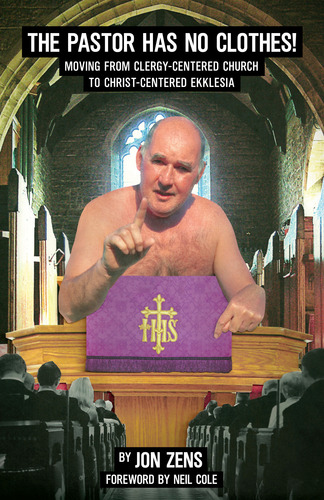To any of my readers who haven’t got an ology I offer an, um, ap-ology, for bringing four ologies into the title of this post.
My responses to Scott Bailey’s post Does Higher Criticism Attempt to “Destroy the Bible”? V, both in comments on that post and in my own post Scott Bailey in bed with creationists!, have created a small storm. I will not attempt to respond any further to Scott, as it is clear that he holds to his materialistic creed with the fervour of a fundamentalist. But some important issues were raised by Scott’s commenters Terri and 4xi0m. I started writing this post in order to address these issues, but matters have moved on as I have been working on this post, and I have said in many further comments there much of what I intended to write here. So here are some slightly disconnected thoughts about the matter.
I can also recommend John Hobbins’ post Why Scott Bailey is wrong and Alvin Plantinga is right.
An issue which I still want to take up is one which I hinted at in my post Unseen Realities: forget Bultmann and the 19th century. There I wrote concerning the activities of spiritual beings:
Just as experiments on the behaviour of individual humans cannot succeed without their consent, so we cannot hope to experiment on the behaviour of individual demons or angels who are unlikely to consent. The best we can do is observe their typical behaviour using the kinds of techniques used in anthropology.
I need to explain a bit more these “techniques used in anthropology”. Anthropology (from Greek anthropos “human being”) is, according to Wikipedia, “the study of humanity”, and
is traditionally divided into four sub-fields, each with its own further branches: biological or physical anthropology, social anthropology or cultural anthropology, archaeology and anthropological linguistics.
In addition, systematic theologians recognise
Theological anthropology, which is not part of anthropology but a sub-field of theology.
The only sub-field of anthropology which I have studied formally is cultural anthropology, and that only for one short course. And the specific anthropological technique I had in mind, which was the focus of that course, is called participant observation:
A key principle of the method is that one may not merely observe, but must find a role within the group observed from which to participate in some manner, even if only as “outside observer.” Overt participant-observation, therefore, is limited to contexts where the community under study understands and permits it. …
It emerged as the principal approach to ethnographic research by anthropologists and relied on the cultivation of personal relationships with local informants as a way of learning about a culture, involving both observing and participating in the social life of a group. By living with the cultures they studied, these researchers were able to formulate first hand accounts of their lives and gain novel insights. This same method of study has also been applied to groups within Western society, and is especially successful in the study of sub-cultures or groups sharing a strong sense of identity, where only by taking part might the observer truly get access to the lives of those being studied.
 I’m sure Scott and his commenters would agree with me that, to a large extent at least, Christian healing and the attribution of activity in this world to angels or demons takes place largely within “sub-cultures or groups sharing a strong sense of identity”, referring to the Christian groups practising these things. That justifies the use of participant observation methods to study these phenomena. I would accept that there are limits to what can be proved by such methods.
I’m sure Scott and his commenters would agree with me that, to a large extent at least, Christian healing and the attribution of activity in this world to angels or demons takes place largely within “sub-cultures or groups sharing a strong sense of identity”, referring to the Christian groups practising these things. That justifies the use of participant observation methods to study these phenomena. I would accept that there are limits to what can be proved by such methods.
But there is another factor here, that angels and/or demons, if they exist, can themselves be treated as “sub-cultures or groups sharing a strong sense of identity”. As such one cannot hope to study their behaviour in any detail without “cultivation of personal relationships” with them as a participant observer. Now I would not suggest that anyone should cultivate personal relationships especially with demons. My point here is more that angels and demons cannot be studied as if they are impersonal forces. Nor can God, although participant observation would not be a suitable technique for studying him.
Then, as I wrote in response to one of 4xi0m’s comments on Scott’s post,
there is an issue to be considered whether spiritual healing depends on “the caprice of an invisible, unpredictable force” or “follow[s] a predictable law”.
Here “force” is 4xi0m’s word. I would have used “person”, on the basis that forces are predictable but persons or not. But on the quantum level even forces are unpredictable, and the Free Will Theorem ascribes to them free will and so blurs the distinctions between them and persons. Scott should note that this theorem which offers metaphysical results, while not necessarily proved beyond doubt, was put forward by respected scientists in the peer-reviewed journal Foundations of Physics.
In fact we have a false dichotomy here. It is well known in many branches of science that whereas the behaviour of individual constituent parts of a system may be unpredictable the behaviour of the system as a whole may follow highly predictable laws. Much of physics and chemistry depend on this large scale predictability of systems which are apparently random at the molecular level. And these same principles can be applied to the behaviour of large groups of people: the choices of each individual are unpredictable but the overall behaviour of the group can often, if not always, be predicted rather well. Indeed this is the whole basis of social science.
One might expect this to be relevant to the activities of angels and of demons, to the perhaps debatable extent that they are individuals acting independently. But is this relevant to Christian healing? I’m not sure. The involvement of angels in healing is controversial. And if healing is down to the work of one God, then it is not about averaging out the behaviour of many individuals. This is a matter not of sociology but of theology.
There is another ology involved here which I cannot recommend for serious study, although sometimes it is good for a laugh: Scotteriology.


 In March
In March 





